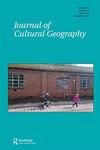Discourse analysis and non-representational theories in heritage studies: a non-reductionist take on their compatibility
IF 0.9
Q3 GEOGRAPHY
引用次数: 4
Abstract
ABSTRACT In the last ten years or so, we have witnessed a shift towards so-called non-representational theories in heritage studies. In non-representational theories, one is interested in cognition, affect, and emotion, as well as textual or visual representations of heritage. This turn can be viewed as a prolongation of the popular approach of analysing heritage as discourse, in which heritage is viewed as a cultural process from which the objects of heritage evolve. However, this paper will demonstrate that some proponents of non-representational theories seem to have overlooked an already established linguistic tradition of analysing affect and emotion ‘in’ texts. Since human affect and emotion are linked with semiotic meaning-making, I argue that it is futile to attempt to separate discourse analysis and non-representational theories. I forward an argument that Critical Discourse Analysis (CDA) and Critical Realism (CR) as a philosophy of science may serve as platforms where non-representational and representational approaches can meet to more fully grasp how we represent and respond to heritage.遗产研究中的话语分析与非表征理论:非还原论对两者兼容性的看法
在过去的十年左右,我们目睹了遗产研究中所谓的非代表性理论的转变。在非表征理论中,人们对认知、情感和情感以及遗产的文本或视觉表征感兴趣。这种转变可以看作是将遗产作为话语分析的流行方法的延伸,在这种方法中,遗产被视为一种文化过程,遗产的对象从中演变而来。然而,本文将证明一些非表征理论的支持者似乎忽视了已经建立的分析文本中的情感和情感的语言传统。由于人类的情感和情感与符号学意义制造有关,我认为试图将话语分析与非表征理论分开是徒劳的。我提出了一个论点,即批判话语分析(CDA)和批判现实主义(CR)作为一种科学哲学,可以作为非表征和表征方法可以相遇的平台,以更全面地掌握我们如何表征和回应遗产。
本文章由计算机程序翻译,如有差异,请以英文原文为准。
求助全文
约1分钟内获得全文
求助全文
来源期刊

Journal of Cultural Geography
GEOGRAPHY-
CiteScore
1.70
自引率
22.20%
发文量
15
期刊介绍:
Since 1979 this lively journal has provided an international forum for scholarly research devoted to the spatial aspects of human groups, their activities, associated landscapes, and other cultural phenomena. The journal features high quality articles that are written in an accessible style. With a suite of full-length research articles, interpretive essays, special thematic issues devoted to major topics of interest, and book reviews, the Journal of Cultural Geography remains an indispensable resource both within and beyond the academic community. The journal"s audience includes the well-read general public and specialists from geography, ethnic studies, history, historic preservation.
 求助内容:
求助内容: 应助结果提醒方式:
应助结果提醒方式:


